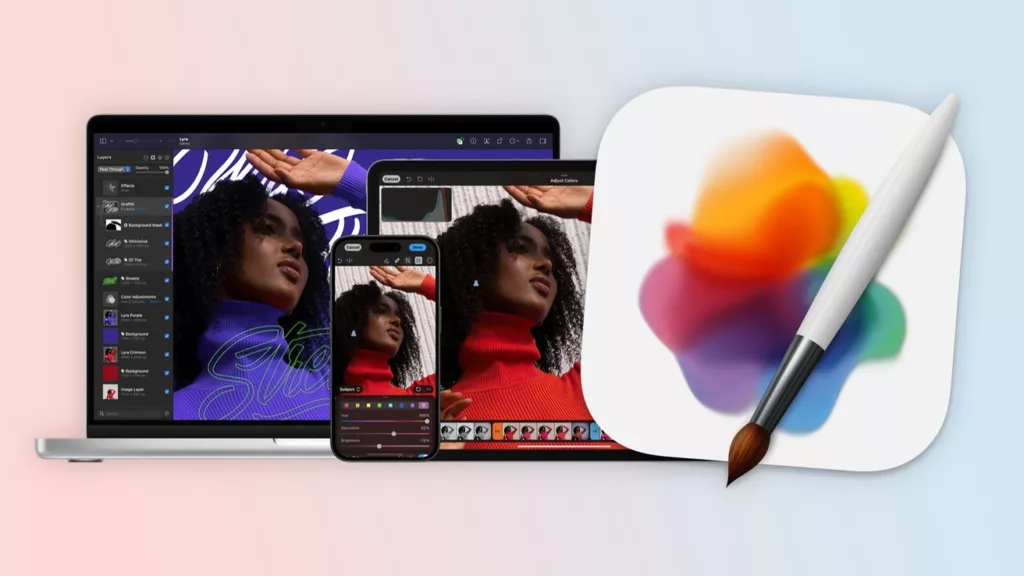The Article Tells The Story of:
- Apple Acquires Pixelmator: Apple has acquired the photo-editing platform Pixelmator to enhance its iOS and macOS photo editing tools, with no immediate changes to Pixelmator’s apps.
- Future Integration with Apple’s Ecosystem: Pixelmator’s features, like layer-based editing and AI enhancements, are expected to be integrated into Apple’s native photo apps, boosting their capabilities.
- Focus on AI and AR: Apple aims to strengthen its AI-powered photo-editing tools, leveraging Pixelmator’s advanced AI tools for future innovations in image enhancement and AR experiences.
- No Android Expansion: Pixelmator will remain exclusive to Apple’s ecosystem, disappointing Android users who won’t have access to its technology.
Apple Acquisition of Pixelmator: An iOS Photo Editing Change in the Wind?

In a strategic move to boost its imaging capability, Apple has acquired the popular photo-editing platform Pixelmator, which sparked discussions in the creative community. While Pixelmator clarified that no immediate changes were planned for its flagship applications, including Pixelmator Pro, Pixelmator for iOS, and Photomator, this acquisition may eventually bring big changes to the way Apple users edit photos.
Check Out similar Article of Editing with Adobe Lightroom’s AI Technology on SquaredTech
This acquisition might mark the start of a new chapter in the life cycle of Apple’s native suite of photo editing tools because Pixelmator’s capabilities are bound to be infused directly into both iOS and macOS. Everything we know so far about the deal, what its implications are, and what it could mean for the fans of Pixelmator and for Apple’s ecosystem.
The Legacy of Pixelmator and How it Evolved from Lithuania to Cupertino
Pixelmator has been a very successful and powerful photo-editing app since its inception in 2007. Founded in Vilnius, Lithuania, the Pixelmator team began with a small group of dedicated creatives who were focused on bringing professional-grade editing tools to the masses. With innovative features and robust functionality, Pixelmator quickly grew in popularity and became one of the most respected image-editing platforms for iOS and macOS users.
In reflection of its journey, Pixelmator’s team stated in their announcement, “It’s amazing what a small team in Vilnius has achieved, and now we have the chance to reach an even broader audience and make a bigger impact on creatives around the world.” Now joining Apple’s portfolio, it gives Pixelmator a door to expand its reach and influence across the Apple ecosystem.
What Changes Can Pixelmator Users Expect?
Nothing changes, material changes-wise, with our core offers, such as Pixelmator Pro, Pixelmator for iOS, and Photomator,” asserts Pixelmator. As of now, however, this remains just a declaration, because Apple has also made it a tradition, while absorbing third-party firms, to incorporate the very best of what they wanted to make into their home-grown apps. Perhaps the day will come when features of Pixelmator could become the icing on the cake of the otherwise great native Photos app available for both iOS and macOS. Some are speculating that Apple may soon integrate similar features such as Pixelmator’s layer-based editing, AI-driven enhancements, and dynamic filters into its own photo-editing capabilities.
Apple is going to have a great deal of enhancements for the Clean Up feature newly released in competition with Google’s Magic Eraser. Now, Clean Up lets its users remove any unwanted object from photos with direct support within iOS. With its broad features in editing, Apple is expected to produce an even more powerful set of image editing tools in one package as a natural extension for photo enhancement by the users.
Question for Android: Is Pixelmator Available for its Platform?
Currently, the reach of Pixelmator is only available on Apple’s iOS, macOS, iPadOS, and visionOS, all of which are under the banner of building a unified ecosystem by Apple. Unlike other applications under Apple’s umbrella, Pixelmator has never been released on Android, and this acquisition is a clear indicator that that will not change.
For Pixelmator fans using Android, this is probably bad news. Apples will keep all Pixelmator’s technology and capabilities in its ecosystem. This would be bad for Android users but good news to the Apple followers whose native iOS and macOS photo apps will continue to evolve.
What to Expect from the Bet on AI at Apple:
This is the time when the company is investing humongous amounts in AI-powered imaging features. Latest updates from Apple include AI-driven photo-editing capabilities like Clean Up, which are widely regarded as a response to Google’s Magic Eraser. With the advanced AI features of Pixelmator, Apple will certainly take these developments further and create a more competitive environment in the AI-enhanced photo-editing landscape.
Check Out similar Article of Apple Fell Behind in the AI Race on SquaredTech
It is well-known that Pixelmator has a great history of powerful AI and machine learning tools, which exactly aligns with Apple’s ambitions. Soon, we might see auto image enhancement with context, exact application of filters, object detection with an accuracy or even a whole new lot of tools integrated into Pixelmator for new AR experiences by Apple.
Conclusion: New Page for Apple Users
Pixelmator is going to make a big jump forward with the support of the brand Apple. For those Pixelmator users existing so far, there may not be immediate changes. Still, people know the process of Apple’s integration and how long it will take. The bought technology looks already on its way into Apple apps, probably revised.
While pushing the envelope in AI and AR, the acquisition of Pixelmator suggests upcoming innovations in photo editing in iOS, macOS, and even visionOS. For a user who already owns Pixelmator or a fan of Apple and new photo tools, the reality is simple: the purchase of Pixelmator may change the face of mobile and desktop photo editing shortly.
Stay updated: Tech News – Editors Pick

